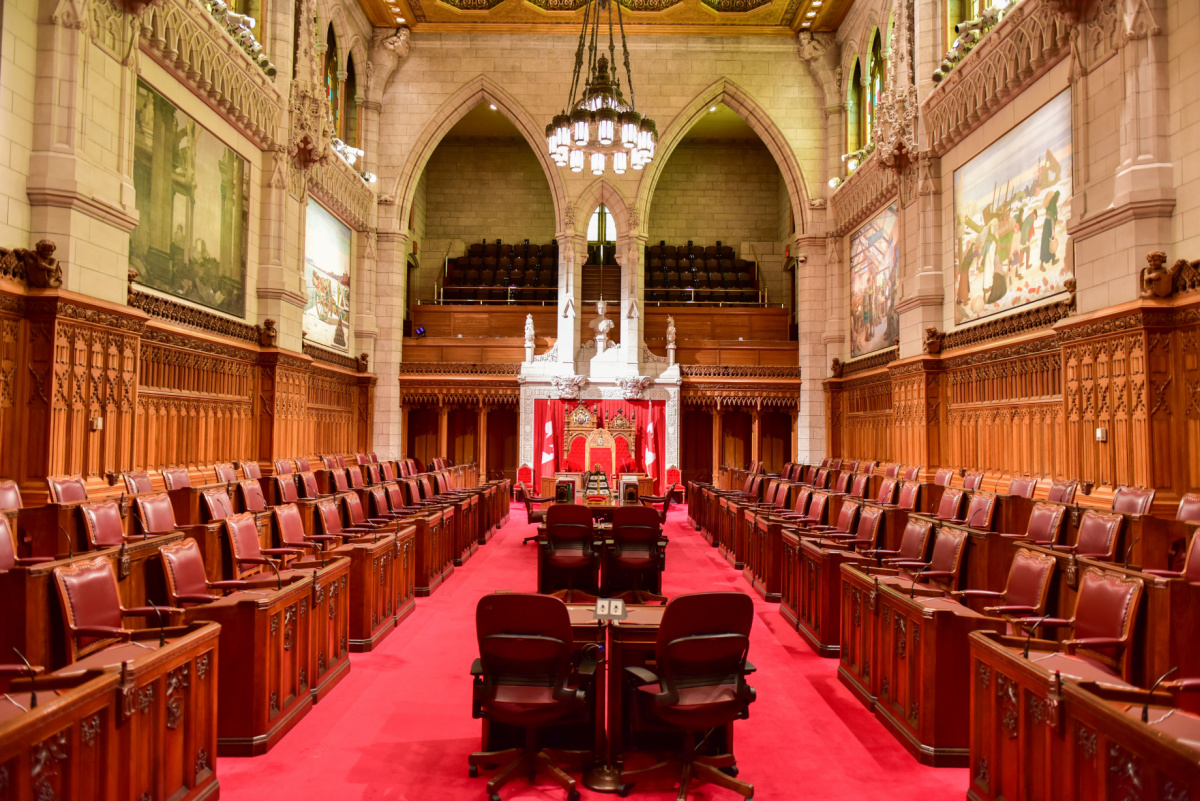
Senate Holds Second Reading of First Nations Gambling Bill
S-268 seeks to grant First Nations sovereignty over gaming on reservation
Four months after its first reading on the Senate floor, S-268 got a second reading in Ottawa.
Bill sponsor Sen. Scott Tannas has never sponsored a bill before but explained to his peers he felt the issue was important enough to take action.
Here is how Tannas summed up the measure:
“Simply put, the bill affirms First Nations’ governments’ jurisdiction and power to govern gambling activities on their reserve lands, and does so in a way that matches identically provincial jurisdiction and powers in their respective jurisdictions.”
The language of the bill bestows “conduct and manage a lottery scheme” on reservation lands much like the provincial lotteries have for the province.
Bill S-268 would formalize First Nations’ control of gaming only on-reserve. It would displace provincial control over those activities, including licensing and — here’s the tricky part — the appropriation of the profits. The desired outcome is that all activity and profit would be under the control of duly elected First Nations governments for gambling on their territories and reserves, in the areas of their jurisdiction. We’re talking about hundreds of millions of dollars per year that would accrue to the benefit of the First Nations communities involved. That’s what this bill attempts to do,” Tannas added.
When questioned about the logistics of how the bill would play out given existing structures in certain provinces, Tannas admitted he had yet to consult any provincial governments about his bill.
“I intend to invite provincial governments to come and tell us what impact it will have, but, at the end of the day, this is about sovereignty — for Indigenous and First Nations peoples — and they either have it or they don’t. We either believe in reconciliation, and that they have jurisdiction on their own lands, or we don’t,” he explained.
Sen. Brent Cotter questioned how this might impact First Nations tribes in provinces like Saskatchewan who participate in profit sharing from casinos on reservation even if they are in remote areas where a casino would not be a tenable option.
“So empowering individual First Nations that are in attractive geographical locations to have the jurisdiction to operate their own casinos seems to be, quite frankly, a disruption of that fairly equitable arrangement in Saskatchewan,” Cotter explained.
He also questioned the nature of the bill, which is set to be under the Criminal Code, and the potential it could create to fully remove First Nations land from the provincial government.
“Another dimension of this is that the structure of the bill says that when a First Nation gives notice to Canada that it intends to establish a gaming regime on its reserve, that First Nation, for the purposes of gaming, is deemed to no longer be part of the province in which it’s situated. It struck me as a unique provision that First Nations, for certain purposes, are deemed not to actually be part of the province anymore. I wonder if you could speak to those jurisdictional questions.”
“They are part of the challenge of reconciliation. It certainly will come across that way in things like child and family social services. It will come that way in education. It will come that way in health. It will come that way in a whole bunch of different areas over the course of time, and it will have to be dealt with,” Tannas responded.
“All we wanted to do, and the simplest thing to do today, was to put Indigenous governments on their reserves where they have jurisdiction in the same position as the provinces. That was the simplest way to do it. There may be, in the fullness of time, other ways in which it could be done. There may be a point when the provinces can’t agree on things and we have to come up with a national gaming scheme. Who knows? But I would not want a new set of soothing words about a ‘someday, maybe’ national gaming program that would include First Nations to get in the way of doing something that’s simple and elegant today.”
The issue of how this might impact online gambling was addressed too, though the answer was somewhat ambiguous.
“It is technologically neutral. It doesn’t speak to whether or not a First Nation has the right to make book in Ontario. It doesn’t say it can’t. It doesn’t say it can,” Tannas said.
The next step in the process for the bill is a vote. Tuesday’s debate was adjourned without action but generally most bills are advanced into committee as a next step. Should it advance to committee, S-268 will be referred to a group that will do research and community outreach to discuss the potential impact of the legislation.